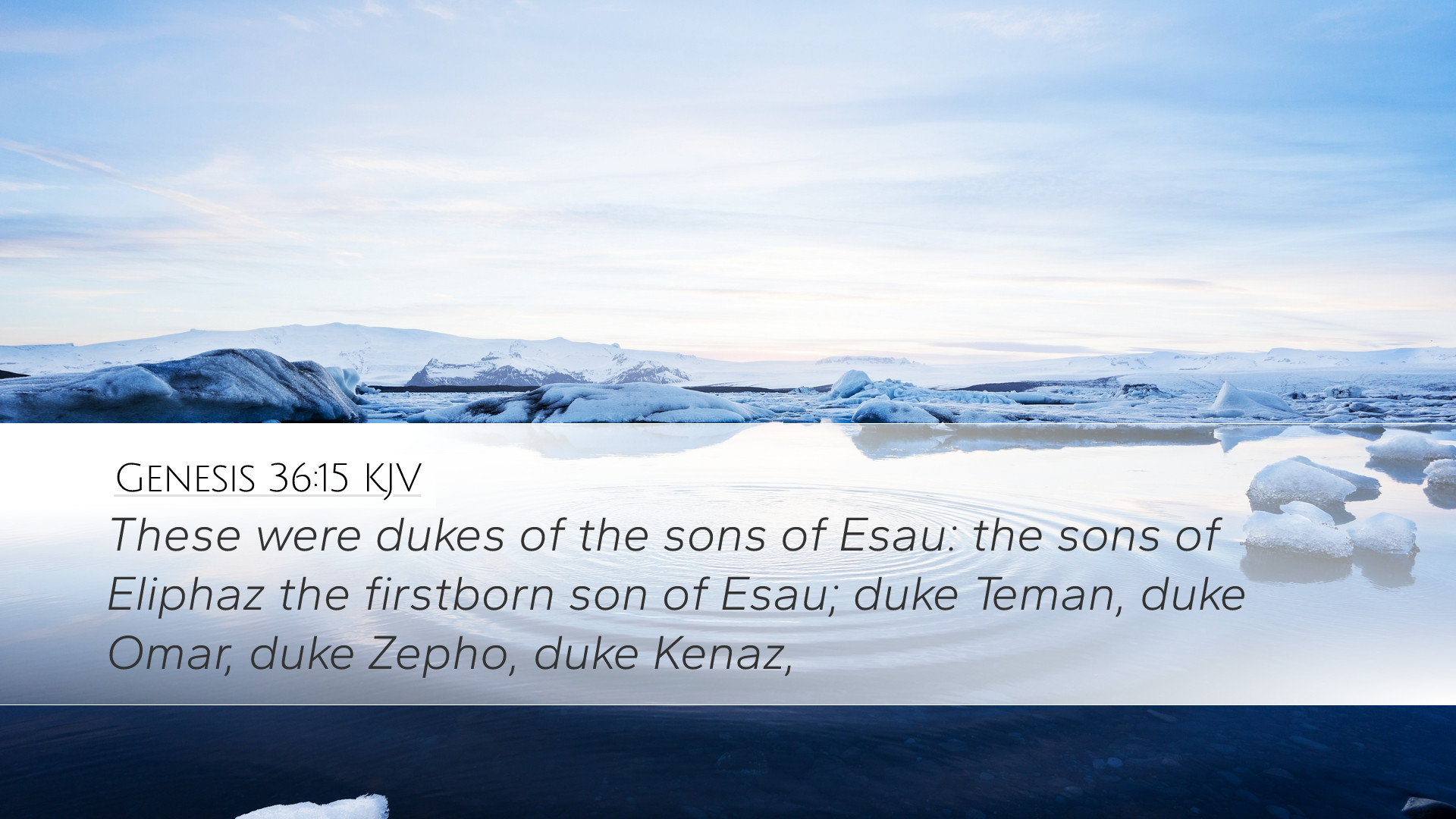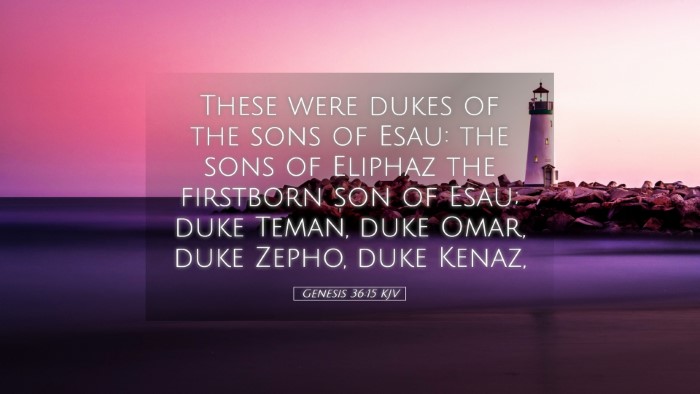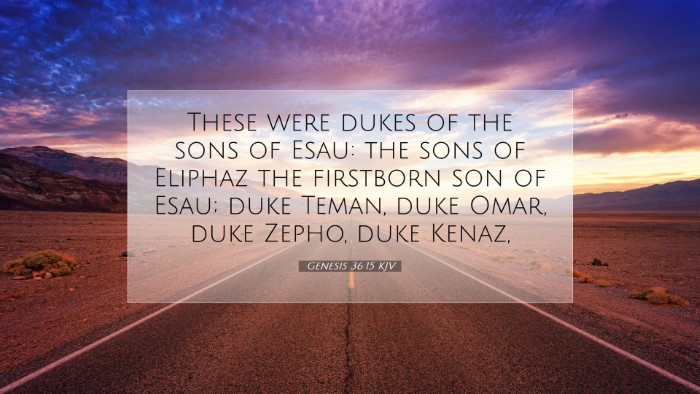Genesis 36:15 Commentary
Verse Context
Genesis 36:15 states: "These were the dukes of the sons of Esau: the sons of Eliphaz, the firstborn son of Esau; Duke Teman, Duke Omar, Duke Zepho, Duke Kenaz." In this chapter, the genealogy and the lineage of Esau are laid out extensively, highlighting the significance of Esau's descendants and their roles in the development of nations.
Overview of the Commentary
The chapter is primarily focused on the descendants of Esau, detailing their families and the leaders that emerged from them. This verse and its surroundings symbolize the establishment of political structures among the descendants of Esau. Public domain commentaries lend insights into several themes this verse represents.
Insights from Matthew Henry
Matthew Henry illuminates the significance of the dukes of Esau as representatives of leadership within tribal structures. He indicates that these titles—like “Duke” or “Chief”—signify the formation of a societal hierarchy and governance among the Edomite people. Furthermore, Henry notes that Esau, having sold his birthright, took a distinct path from Jacob, thus influencing his descendants' fate in the larger context of Israel’s genealogical narrative.
- Leadership and Authority: Henry emphasizes the authority and prominence that were established among Esau’s descendants, as these dukes played significant roles in local governance.
- Contrast with Jacob: There is a contrast made between Jacob's lineage and Esau's, highlighting God’s covenantal promise through Jacob’s line as opposed to Esau’s earthly power.
Insights from Albert Barnes
Albert Barnes elaborates on the cultural and historical context of the dukes of Esau, noting that the designation "Duke" might reflect tribal leaders or rulers within Edom. This hierarchical framework indicates a structured society where leadership was vital for their civilization's development.
- Cultural Implications: Barnes suggests that these titles also reflect the societal organization of the Edomites—establishing control and governance that mirrored surrounding nations.
- Geographical Significance: The significance of locations associated with these dukes is also discussed, showing how geography formed the basis for the tribal affiliations and their settlements in Edom.
Insights from Adam Clarke
Adam Clarke provides a detailed exploration of the names listed, pointing out the potential meanings and etymologies linked with each duke's title. Clarke often highlights how the names of these leaders indicate characteristics of the tribes they represent.
- Interpretation of Names: Each duke's name, such as "Teman" (often associated with the south) and "Omar" (possibly meaning ‘eloquent’), is treated with significance, providing insights into their roles and attributes.
- Historical Context: Clarke also emphasizes that the mention of prominent figures establishes a profound understanding of the historical context of Edom, including its interactions (often hostile) with Israel.
Theological Implications
This verse, while genealogical, extends a broader theological discussion important to understanding God’s sovereignty and the unfolding of His covenant. The existence of these dukes is not merely a record of ancestry but signifies God’s intentional design in history, emphasizing that all nations and peoples play a role in His divine narrative.
- Diversity of God’s Plan: God's plan encompasses all nations and through these genealogies, one can see the complexity and the depth of His purpose throughout history.
- Redemption and Covenant: Esau's descendants remind the reader of the importance of God's election, and how His covenants often transcend human expectations of power and inheritance.
Conclusion
Genesis 36:15 is not merely a listing of names but serves as a crucial junction in the larger biblical narrative of God's people. The insights from Matthew Henry, Albert Barnes, and Adam Clarke reveal the interplay between heritage, leadership, and divine destiny, enriching the understanding of theological themes surrounding Esau's legacy. For pastors, students, and theologians, this verse encourages reflection on issues of identity, leadership, and God's unfolding plan throughout history.
Reflection Questions
- How does the study of Esau's line inform our understanding of God's sovereignty in the midst of seemingly mundane genealogies?
- In what ways do the cultural and societal implications of this passage resonate with contemporary issues of leadership and authority?


